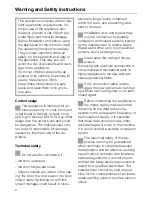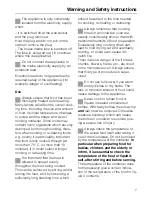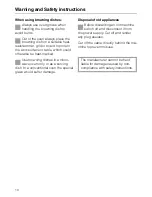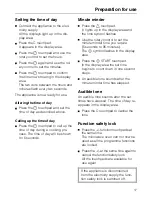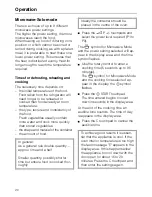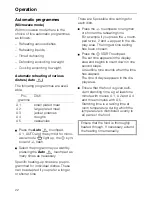
How the microwave oven functions
In the microwave oven, food is cooked,
reheated or defrosted considerably
more quickly than by any other method.
How does the microwave oven func-
tion?
In a microwave oven there is a high-fre-
quency tube called a magnetron
b
.
This converts electrical energy into
microwaves. These microwaves are dis-
tributed evenly throughout the oven in-
terior by a metal fan blade known as a
stirrer
c
-, rebounding off the stainless
steel sides of the oven interior and
thereby reaching the food from all
sides. Microwave distribution is im-
proved by engaging the turntable.
In order for microwaves to reach the
food, they must be able to penetrate
the cooking utensil being used. Micro-
waves can penetrate porcelain, glass,
cardboard and plastics but not metal.
Do not, therefore, use utensils made of
metal, or which contain metal, for
example in the form of gold or silver
trim. The metal reflects the microwaves
and this could lead to the creation of
sparks. The microwaves cannot be ab-
sorbed.
Microwaves pass through a suitable
container and find their way directly
into the foodstuff. All foodstuffs contain
moisture molecules which, when sub-
jected to microwave energy, start to os-
cillate 2.5 thousand million times a sec-
ond. The friction caused by this
vibration creates heat, which first starts
developing around the outside of the
foodstuff and then slowly penetrates to-
wards the centre. The moisture, fat and
sugar content of food will affect the
speed at which it is cooked.
As heat is produced directly in the food,
– food can generally be cooked without
adding much liquid or cooking oil.
– cooking, reheating and defrosting in
a microwave oven is quicker than
using conventional methods.
– nutrients, such as vitamins and mine-
rals, are retained.
– colour, texture and taste of food are
not impaired.
How the microwave oven functions
11






